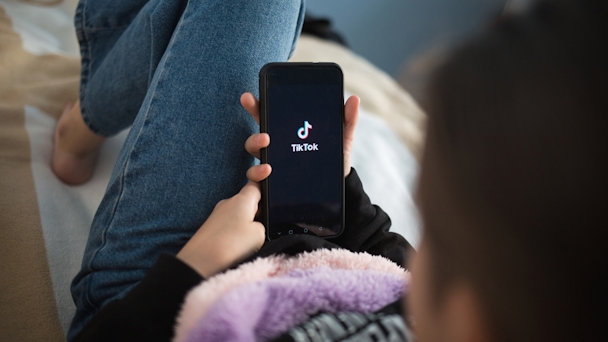Losing TikTok could spark Gen Z’s next big movement
As the US Supreme Court prepares to hear arguments over an impending nationwide TikTok ban, Nataly Kelly, CMO of consumer insights platform Zappi, argues that the fate of the platform will have major ripple effects for Gen Z consumers – and the brands and voices they trust.

TikTok's fate in the US market remains a mystery for now / Adobe Stock
For generations, trusted voices in the media have shaped how we understand current events and engage with the world around us. Walter Cronkite, once dubbed ‘the most trusted man in America,’ told the stories of the day to millions each night. He was the first voice people turned to during pivotal moments, such as the JFK assassination and the moon landing.
As the media has decentralized, these authoritative voices still exist, but they no longer come exclusively from the mainstream media, where a small selection of companies determine what’s talked about and by whom. Instead, today’s trusted voices are native to the internet and exist within communities.
Social platforms such as TikTok are a go-to source for consumers to find voices they trust. Zappi recently surveyed 1,500 US consumers, and found that Gen Z are significantly more likely to use social media as a news source (51%) than going directly to a news organization (28%).
But what happens when the platform itself becomes the battleground? With the Supreme Court set to hear arguments this month on a potential TikTok ban in the US, the implications could be far-reaching – not only for how Gen Z stays informed but for how they mobilize around the issues that matter most.
39% of Gen Z oppose a TikTok ban, the highest percentage among all age groups. Nearly a third (28%) of respondents said they would spend less time on social media altogether if TikTok were removed. Almost half of Gen Z users report spending over three hours a day on the app.
Losing access to TikTok could fundamentally reshape how Gen Z consumers engage with media, advocacy and brands.
Want to go deeper? Ask The Drum
Gen Z’s innate concern for social and political values
Every generation witnesses a defining political moment that transforms passive citizens into active advocates. For Boomers, it was the anti-war protests of the 60s; for millennials, the #MeToo movement. Now, Gen Z’s battle may center on free speech and connection.
Digital-native generations have grown up with brands bombarding them with content and ads in more channels than generations who remember a time before the internet. At the same time, they have higher expectations from brands to align with their values. A striking 86% of Gen Z consumers believe that brands should take a stand on social and political issues. Whether it’s environmental conservation or diversity and inclusion, Gen Z wants brands to take action.
Advertisement
For Gen Z, TikTok isn’t just an app – it’s their digital town square. It’s where they discover trends, find products, consume news and connect with others. Eliminating access to such an important outlet could galvanize this already engaged generation to become more socially and politically involved.
With a growing need for brands to embody and advocate for social values, companies will be forced to consider how to appeal to Gen Z consumers in new spaces where cultural and political conversations will begin to take place.
Where will Gen Z go without TikTok?
YouTube is the most popular social platform for Gen Z today – 69% report using the video-sharing platform frequently. However, these same consumers spend the most time on TikTok, with 49% reporting using the app for three or more hours per day.
This begs the question: if TikTok is banned in the US, where will Gen Z users go? Our research indicates that many Gen Z consumers believe they may use social media less altogether. TikTok’s absence may slightly reduce overall social media use, but it’s more likely that time and attention will be redistributed to other platforms.
Advertisement
Some platforms, including Reddit, could see an influx of users looking for niche communities, while YouTube’s influence could grow as former TikTok users scramble to reconnect with their trusted voices. And Mark Zuckerberg is likely drooling at the opportunity to solve his Gen Z problem. I wouldn’t be surprised to see big-money deals happen as competing platforms try to lure leading TikTok creators and users to new environments.
Others may look to entirely new platforms yet to emerge, but the sticking point will be how marketers for these competing platforms create new, community-driven experiences to fill the gap. With more brands building their own media programs, marketers have an opportunity to intentionally create such spaces.
Suggested newsletters for you
Implications for marketers
For marketers, a potential TikTok ban in the US represents both a challenge and an opportunity. TikTok’s algorithm curates hyper-relevant content. Replicating it requires understanding how Gen Z forms and interacts with communities.
However, marketers should take note of Gen Z’s passion for advocacy among politically activated consumers. This generation demands authenticity and alignment with their values. Brands that fail to understand this today risk becoming irrelevant tomorrow. With all eyes on TikTok, Gen Z consumers will sniff out a brand that roots for their town square’s downfall behind closed doors and beckons them into new ones.
